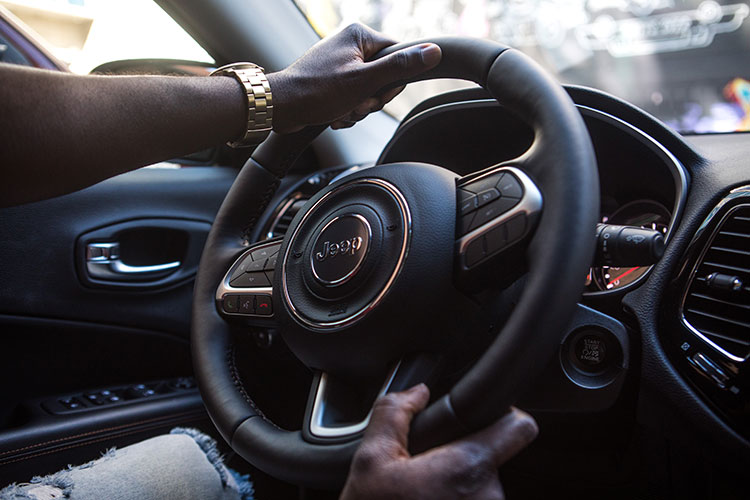We learn more about COVID-19 and the virus that causes it by the day, so it’s important to keep up with the latest guidelines on combatting its spread. That can be done by paying attention to the CDC, the World Health Organization, and your local health authorities.
How to Stay Safe When Driving During the Coronavirus Pandemic
Washing your hands and avoiding close contact with people have become the best methods to prevent the illness. But clean hands won’t help you if the surfaces you touch are dirty. The vehicles we drive, rent and ride in are all susceptible to helping spread the coronavirus if the proper precautions are not taken.
According to the World Health Organization, the disease can spread from person to person through small droplets from the nose or mouth, which are spread when a person with COVID-19 coughs or exhales. The droplets can land on objects and surfaces around the person. If someone nearby touches these objects or surfaces then touches his or her eyes, nose or mouth, the person will likely be infected. The disease can also be spread if a person with COVID-19 coughs or sneezes and someone nearby breathes in the droplets. Here’s how to stay safe when driving during the Coronavirus Pandemic:
Limit the Number Places You Drive
Drivers should abide by regulations local health authorities have put in place to slow the spread of the virus, which may include staying put except for essential errands. Although more business is opening, the recommendations are still to social distance and avoid contact. The more places you go, the higher your chances are of interacting with someone or something with the virus — thus heightening the risk of bringing that into your car.
Be Extra Careful when Filling Up
Studies have shown that fuel pumps may carry up to 11,835 times the germs of the average public toilet seat. Wear gloves when touching fuel pumps, keypads, and other high-touch areas at the gas station, which may not be regularly sanitized.
Keep it Clean
According to the CDC guidelines, it is a good idea to wash your hands before and after eating, using the restroom, providing care for people who need assistance, and sneezing, coughing or blowing your nose. The general-purpose recommendations for avoiding the COVID-19 virus apply to car travel as they would any other part of life. Use hand sanitizer immediately after getting in your car to avoid contaminating it with germs you might have picked up when out and about. Make sure the sanitizer has at least a 60% alcohol content. Test your disinfectant or sanitizer on a small, inconspicuous area, then repeating that test on the high-touch spots in your car. Check to see if the cleaner causes any discoloration before letting the product sit for the full recommended time. Care and cleanliness is most important for how to stay safe when driving the Coronavirus Pandemic.
Focus on Common Vehicle Touch Points
You’ll want to clean the places you come into contact with the most. Besides the obvious places such as a door handle, key fob or steering wheel, the most important part of the interior to keep clean is the dashboard. It is a large surface that is constantly seeing air move across it. Other places to clean include the inside door buttons, seat belts, gear shifters and touch screens. While your individual circumstances with your vehicle will vary, the CDC recommends cleaning and disinfecting touched surfaces daily. The outside of the car is less likely to carry the virus. However, it is still a good idea to clean door handles and other exterior touch points.
Be mindful of What’s in Your Car
Anytime you bring foreign, germ-prone objects into your car — such as laundry or groceries — there is a chance that you’re bringing the novel coronavirus in with them. The more things in your car are more things to worry about and become surface for Coronavirus. It is a good idea to start clean to keep it clean. Finally, make sure anyone who shares the car with you takes the same precautions.
If you have been in an accident, CONTACT US TODAY TO SCHEDULE AN ESTIMATE, it is never a good idea to be traveling around in a damaged vehicle. We are practicing sanitization and social distancing during estimates, repair and delivery.










